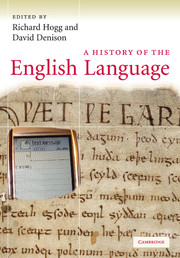4 - Vocabulary
Published online by Cambridge University Press: 05 September 2012
Summary
Introduction
The function of lexemes
The ‘normal’ native speaker of a language will probably regard sounds and words as the most basic building blocks of a language, because they are the elements which can be perceived most easily without specific training. We put sounds together to form words, and we put words together to form larger structures, i.e. sentences realised as utterances (at least that is what we think we are doing). Therefore, speakers tend to react most readily to variation and change of pronunciation and vocabulary. Words, or rather lexical items or lexemes (= dictionary entries), can be regarded as intermediate elements between the level of sounds and the level of syntactic structure. But there are some additional reasons having to do with the existence of certain types of lexemes and their function why lexemes have this bridge function between phonology, morphology, syntax and the lexicon (see Section 4.1.5. below).
Lexemes are the means by which we make direct reference to extralinguistic reality, converting our basic perception of the world around us into language. Their basic function thus is to serve as labels for segments of extralinguistic reality which a speech community finds nameworthy, so that it can talk about it in a simple and direct way.
- Type
- Chapter
- Information
- A History of the English Language , pp. 199 - 270Publisher: Cambridge University PressPrint publication year: 2006
- 19
- Cited by



